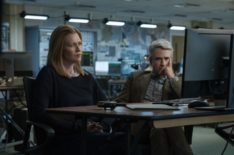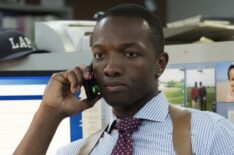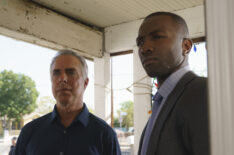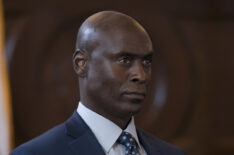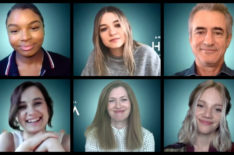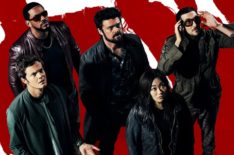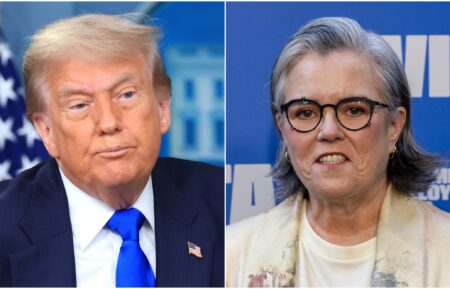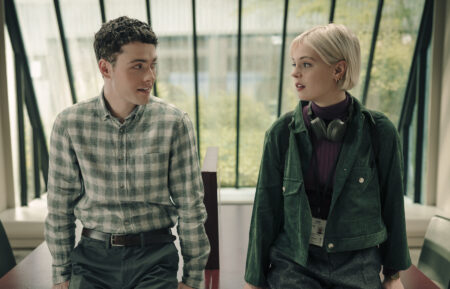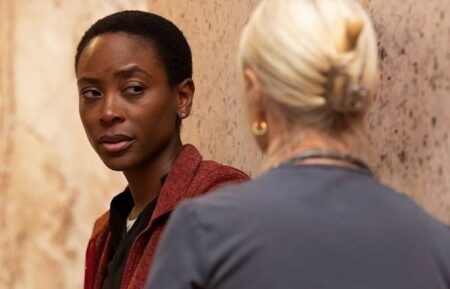‘Bosch’: Michael Connelly Talks the Show’s Relevance & Teases Season 7
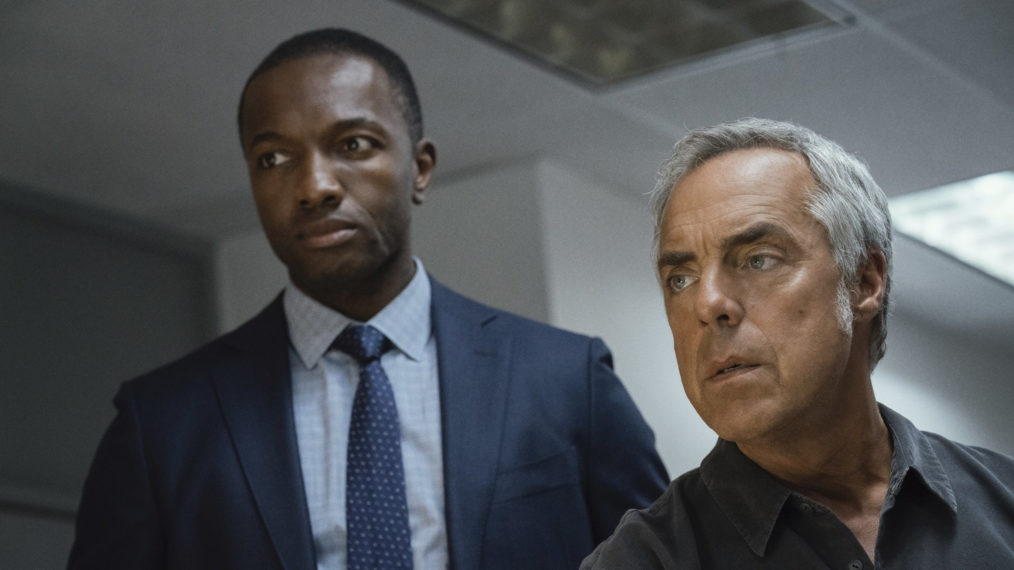
Q&A
Whether it’s as a celebrated journalist or prolific novelist, Michael Connelly has always found a way to tap into real issues facing our country. It’s a big reason why Bosch, the police procedural spun off from his popular book series, remains essential viewing on Amazon.
The show follows the cases and lives of its titular Detective Hieronymus “Harry” Bosch (Titus Welliver), partner Jerry Edgar (Jamie Hector) and others within the Hollywood Homicide and Los Angeles Police Department.
In our real world, amid a global pandemic, racial tensions have bubbled over. Protests fill the streets, drawing the line between law enforcement and the citizens they’ve sworn to protect and serve. Through it all, Bosch — Amazon’s first original drama series and currently the streaming service’s longest-running show in general — remains as relevant as ever. It’s sixth season launched in April, and the show has been renewed for a seventh and final season.
“There was a point that we were filming [Season 3] downtown at the real police station,” Connelly, who co-created and executive produces the series, recalled.
“There were protesters at City Hall a block away. They didn’t know we were filming this police graduation scene. We had to say to them this is not the real police. It’s one of these moments where life imitated art, and art imitates life.”
As another example of the show’s art imitating life, Season 4’s overarching story could also run on the front page of the Los Angeles Times today. At the center is Howard Elias, a well-known African American civil rights attorney, who was murdered aboard the Angel Flight railway. Elias gained notoriety for taking on plaintiffs arguing racial harassment and police violence against them. Much like what we’ve since seen in the wake of George Floyd;s murder, Elias’ killing proved to be the spark to igniting further conflict in South-Central L.A.
Here, Michael Connelly talks further about how Bosch tackles these tough topics, and where the crew is in preparations for the acclaimed crime drama’s final season.
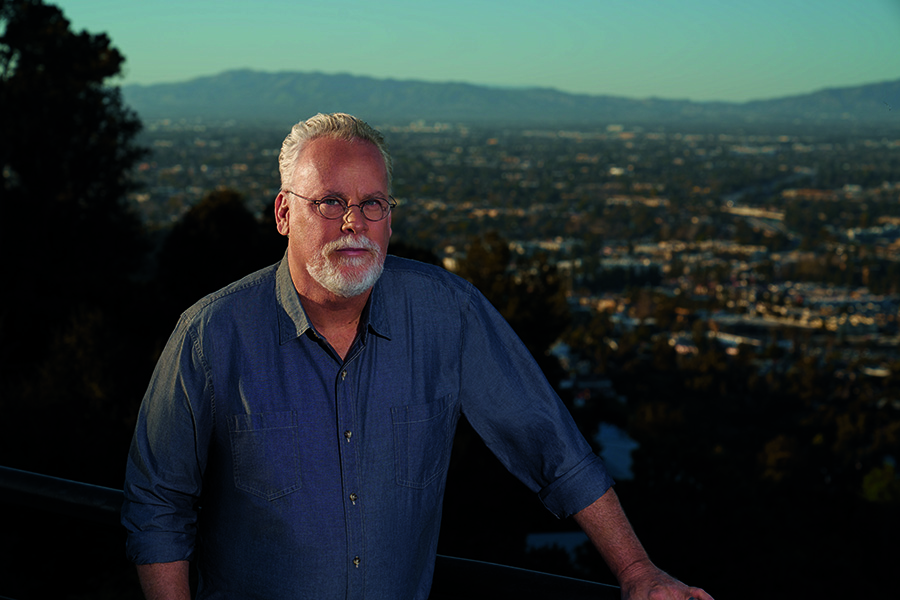
Michael Connelly (Photo by: Mark DeLong)
How has the pandemic and quarantine affected the writing process?
Michael Connelly: We were literally a week, maybe a few days into going our separate ways to write scripts. We had been meeting since some time in February to map out the season. We have eight episodes in this final season, so we were ahead of the game [before the shutdown]. We were at the point where scripts were assigned once we had the outline. We were heading off our own way to write.
Normally, we have the writing room and then everyone has little offices. The only big difference is everyone was sent home to write. We’ve had a few Zooms here and there, but we haven’t been in a position of a regular routine or Zoom world like other shows are doing. It’s negligible. In terms of my own life, I’ve been writing at home on books. I’m pretty much used to working from home.
A lot of people have been discovering and binging Bosch while at home. There was even that #BoschStakeout marathon watch-a-long on social media. What has that been like to see in these times?
It’s weird that the world is in a pandemic, but there are some slivers of good news in that the show is pretty popular. I think it had its biggest audience probably since we began. Everything is anecdotal, as Amazon doesn’t share data other than to say they’re very happy. Anecdotally, on social media you find people discovering it. They are trying it and finding out it’s not your normal cop show. It’s unique in its own way. I think people are responding to it.
With everything going on in the country, Season 4’s story was so timely. It really resonates with audiences.
On a closer level, it’s really too bad that things haven’t changed. The book [on which that season was based, Angels Flight] was written back in the ’90s. That was more of an exorcism of my feelings of being a journalist and those riots in 1992. That, along with the PTSD element I put in that book.
Almost 20 years go by, and we’ve turned into a TV show, and a couple of years go by, and it has some current resonance. The sad part is, where have we come? Have we made very many changes?
On the positive side, in terms of being a TV maker, I think everyone associated with the show is pretty proud in that it has never been a show that glorifies cops, white and black. It’s more of a a gray area-type show.
We’ve always tried to show that it’s a complex and difficult situation. It can be very difficult to be a good cop who doesn’t get corrupted by things like racism, brutality. I think we’ve been pretty honest in showing that. Not all the cops from our show are good. We’re trying to show a handful of cops who are trying to do it right. The show is named Bosch, but he isn’t the only character in this situation.
What is also celebrated about the show is its diversity, even in the top-ranking position. You have a Black police Chief Irving (Lance Reddick), who viewers have watched rise up the ranks over the years.
The hallmark, hopefully, even in the books, is an accuracy and connection to the city. The show is supposed to be emblematic of the city. It’s supposed to be a melting pot. That’s what we try to show. That’s mixed with the technical responsibilities of us making a good show. When we cast Lance Reddick, who would become the police chief, that was a character [who] in the books is white.
I’d love to say diversity was on our mind, and we were trying to make a statement. But we were just trying to find the best actor for the role. Our showrunner, Eric [Overmyer], had a prior relationship [with Lance] on a past show; they worked on The Wire. He knew what his skill level was, which is incredibly high. That’s why we wanted him.
We have always been aware of trying to make the show on both sides of the camera diverse. Our writer’s room is very diverse. We’ve always tried to reflect what is going on in the city the best we can. That has been a goal from the start.
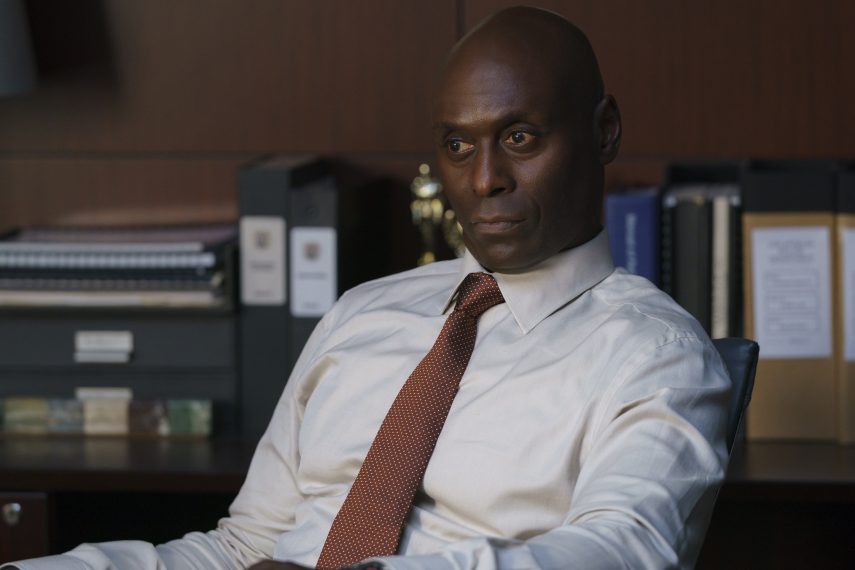
Lance Reddick is Chief Irvin Irving (Amazon)
Cop shows have been altered or even cancelled these days. Do you think Bosch would have been greenlit or presented how it has been in today’s environment?
I think right now it’s going to be really hard to sell a new cop show, unless you are really serious about conforming the show with what’s going on with the culture now. We’re six seasons in, and we’re thinking about that as well.
To walk into a room and pitch a cop show is going to be very hard. We have a show where you know what’s going on and know the diversity and sensibilities. You know the controversy within that department and the city that we’re not afraid of tackling. That’s because you’ve seen that in six seasons. It would be hard to start out and say we’re going to do this and that. It’s a hard sell. I’m glad I’m not in that situation.
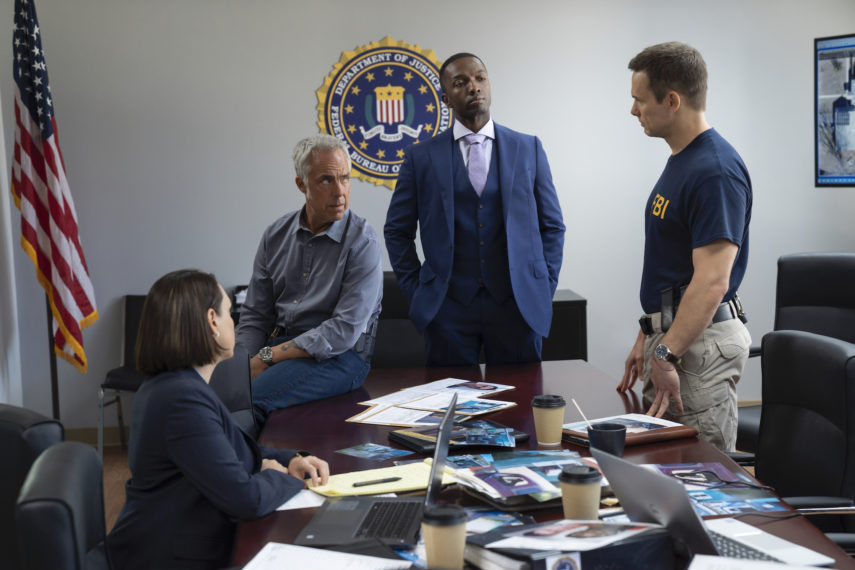
Amazon Prime Video
You mention working on scripts for the final Season 7. Has what is going on now led to any changes moving forward? There has to be added pressure to provide a satisfying last season with the bar set so high.
It’s difficult, because we are already down the road. We outlined the season, taking the last six and seven years into account. We want to write to an ending, and we have that ending. It was set in January before any of this happened. We’re faced with the question, do we retool? Do we spend the time and money to retool and start over? Or can we do some stuff in this last season with what we already have and change it and tweak it?
It’s hard to talk about it without giving away how it ends, which I don’t want to do. I think it will be interesting. I think when this season is finished, it will be set before the killing of George Floyd. But it’s going to have an echo that goes forward to that. It’s going to be germane. It is the best way to put it.
What’s the latest you can tell us about production?
Nothing is official yet because we’re in such a fluid situation. We normally would be in pre-production now and always started filming the last week in July. Obviously, we’re not going to do that. We’re hoping — but who knows for sure — that if we can get into production by September we’ll be able to drop the show in April … it’s really a week-to-week situation.
We’re just hoping that there will be some clarity in how we can enter safe conditions. It’s not about when we start, but how we do it safely. That’s going to be a big impact. Production is going to cost more, take longer. All this in pursuit of extreme safely. Whenever we get started, we’re going to be confident in how we do it.
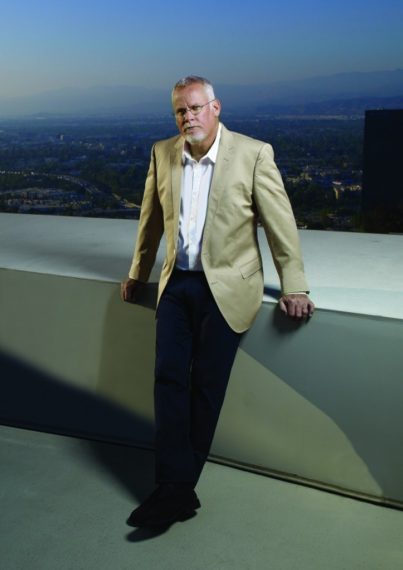
Photo by: Mark DeLong
Are there any of the main characters from the books you would want to bring to the TV realm?
I’m still hoping we’ll get Lincoln Lawyer going by the end of the year. It was set to go on CBS, but they cancelled it due to the virus and other things. We’re seeking another place for it. There is a lot of interest, so I think that will happen. I have other characters. It’s tough to pitch a cop show right now, but I do have a good news reporter, journalist, series I would love to see something happen with.
There are so many stories that can be told within the Bosch universe. Do you see the door being open for movies or other opportunities to continue beyond a traditional final season?
We’ve talked about it. The way these deals work even after Bosch ends, Amazon will hold the rights to that character for a number of years. It would be nice to check in with Harry from time to time whether it’s a movie or miniseries. We’re always open to that. We’ll see what happens. Amazon has always liked what we’ve done. They might come around by way of rebooting this in an interesting new way.
Bosch, Seasons 1-6, streaming now, Amazon Prime Video. The series has been renewed for a seventh and final season.

